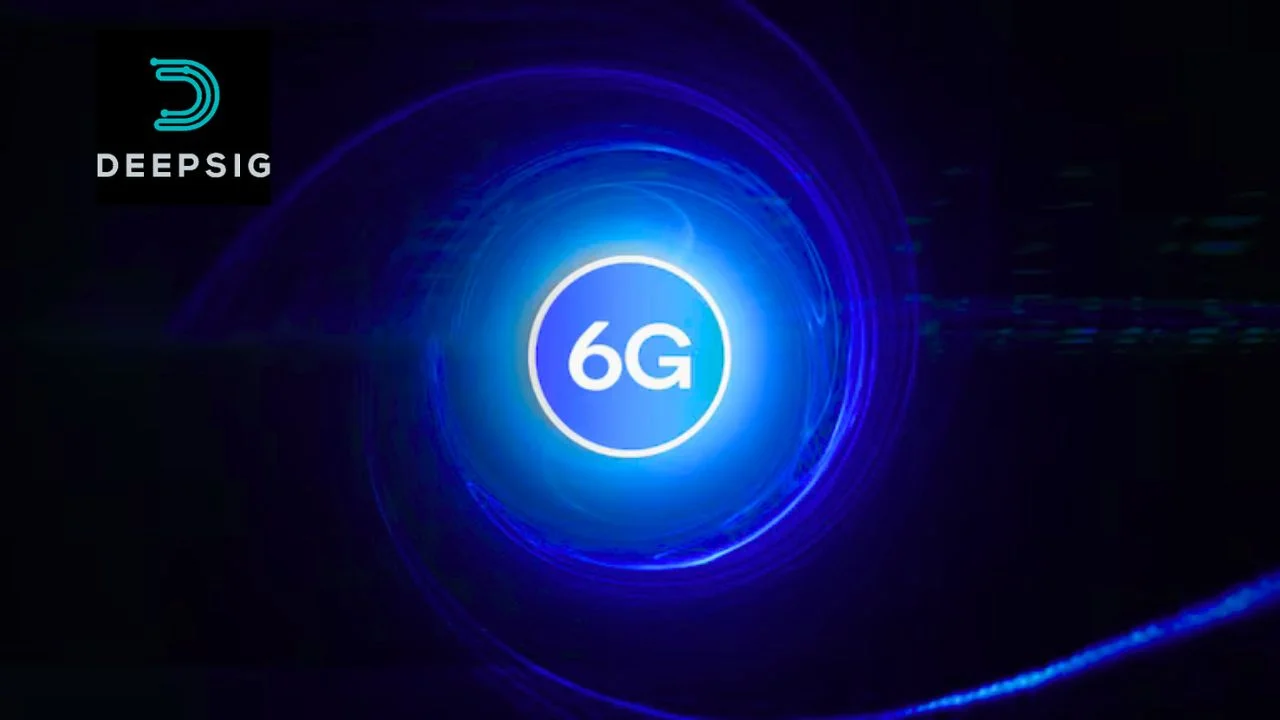
DeepSig and SRS Partner to Lead OCUDU: A Groundbreaking Open-Source 5G/6G RAN Initiative for the DOD
DeepSig, a trailblazer in AI-native wireless communications software, has been awarded a significant contract under the National Spectrum Consortium (NSC) Spectrum Forward Other Transaction Agreement (OTA). This initiative, spearheaded by the FutureG Office within the Office of the Under Secretary of Defense for Research and Engineering (OUSD(R&E)), aims to develop a scalable, carrier-grade Radio Access Network (RAN) software stack for 5G, 6G, and AI-RAN technologies. Partnering with Software Radio Systems (SRS), a leader in RAN software development, DeepSig will collaborate closely with the Linux Foundation to deliver an open-source platform that aligns with the Department of Defense’s (DOD) mission to build secure, resilient, and adaptable wireless networks.
This project, known as OCUDU (Open-Source 5G/6G Distributed Unit and Central Unit), seeks to accelerate the development of an open-source ecosystem for 5G and future 6G networks. By creating a common, modular framework, OCUDU will empower the government, industry, and research community to innovate rapidly, prototype new capabilities, and integrate Next-Generation (Next-G) technologies into a unified stack. The initiative addresses critical challenges faced by the DOD, including reliance on proprietary systems that limit flexibility, stifle innovation, and create vendor lock-in.
A Vision for Open, Secure, and Scalable Wireless Networks
DeepSig CEO Jim Shea emphasized the significance of this initiative, stating, “DeepSig is honored to lead this pivotal effort to accelerate the DOD’s adoption of open-source 5G and 6G networks. By combining the robust capabilities of the srsRAN community with DeepSig’s AI-native expertise, we will deliver an open CU and DU reference implementation that advances interoperability, security, and innovation across defense applications and the broader global wireless ecosystem.”
The collaboration between DeepSig and SRS represents a transformative step forward in wireless communications. SRS, renowned for its commitment to building open, carrier-grade RAN software, brings over a decade of experience in fostering innovation across government, industry, and academia. Paul Sutton, CEO of SRS, explained, “With the OCUDU initiative, we are taking the next step by creating the ‘Linux of RAN’—a neutrally governed, carrier-grade, and open-source software platform for 5G, 6G, and beyond. By transitioning our proven srsRAN software to the Linux Foundation and partnering with AI-RAN experts like DeepSig, we are ensuring a transparent, secure, and sustainable ecosystem that aligns public and private sector goals while supporting innovation at scale.”
This vision positions OCUDU as a cornerstone of the DOD’s strategy to modernize its wireless infrastructure while fostering collaboration between government agencies, private enterprises, and academic institutions. By adhering to 3GPP and O-RAN Alliance specifications, the project ensures compatibility with global standards, enabling seamless integration into diverse deployment architectures.
Addressing Key Challenges in Wireless Communications
One of the most pressing issues facing the DOD is the reliance on proprietary RAN systems, which often hinder flexibility, slow down innovation, and lock users into specific vendors. OCUDU directly addresses these challenges by delivering a modular, hardware-agnostic solution that operates efficiently across various environments. This approach not only enhances adaptability but also reduces dependency on single suppliers, promoting a more competitive and innovative marketplace.
The initiative also advances the maturity, testing, and availability of open CU and DU implementations—two critical components of disaggregated RAN architecture. By investing in the expansion, hardening, and testing of OCUDU’s feature set, the project ensures that the platform meets the rigorous demands of mission-critical defense operations while providing a foundation for broader commercial and research applications.
Leveraging AI and Accelerated Computing for Enhanced Performance
To further optimize the OCUDU platform, DeepSig will leverage its expertise in artificial intelligence (AI), machine learning (ML), and accelerated computing. These technologies will play a crucial role in enhancing RAN performance and efficiency, enabling the development of key AI-RAN reference platforms. By integrating advanced AI/ML capabilities into the OCUDU stack, the project aims to accelerate the adoption of AI-driven solutions in wireless networks, paving the way for smarter, faster, and more efficient communication systems.
This focus on AI-RAN aligns with the DOD’s broader strategy to harness cutting-edge technologies for national security and defense. By embedding AI capabilities into the core of the RAN architecture, OCUDU will enable real-time decision-making, predictive analytics, and dynamic resource allocation—features that are essential for both military and civilian applications.
Strengthening U.S. Leadership in Wireless Innovation
The OCUDU initiative underscores the U.S. government’s commitment to maintaining leadership in secure and interoperable wireless infrastructure. By fostering closer collaboration between the public and private sectors, the project creates a faster pathway for research, development, maturation, and deployment of Next-G technologies. This alignment not only strengthens domestic capabilities but also positions the U.S. as a global leader in 5G Advanced and 6G development.
Through the SRSRAN-OCUDU project, DeepSig and SRS are ensuring that the DOD and its partners have access to an open, secure, and carrier-grade CU and DU software platform. This platform will support mission-critical defense operations while serving as a foundation for diverse applications in 5G Advanced and 6G networks. By enabling rapid prototyping and experimentation, OCUDU empowers innovators to push the boundaries of what’s possible in wireless communications.
A Collaborative Ecosystem for the Future
At its core, OCUDU represents more than just a technological advancement—it embodies a collaborative ecosystem designed to drive innovation and foster trust. By transitioning proven srsRAN software to the Linux Foundation, the project ensures transparency, neutrality, and long-term sustainability. This approach aligns with the DOD CIO’s directive to expand the use of secure open-source software and supports OUSD(R&E)’s strategy to strengthen public-private partnerships in Open RAN.
As the initiative progresses, DeepSig and SRS will engage with a wide range of stakeholders, including government agencies, industry leaders, and academic researchers, to evaluate and adopt the OCUDU RAN platform. This inclusive approach reinforces the project’s goal of creating a shared foundation for future wireless innovation.
About DeepSig, Inc.
DeepSig is a pioneer in AI native wireless communications. Its transformative technology pushes the boundaries of spectrum sensing, wireless performance and network capabilities. Drawing on a unique blend of expertise in deep learning, wireless systems and signal processing, DeepSig’s AI/ML powered software enhances security, efficiency and capacity for tactical and commercial wireless communications in licensed or shared radio spectrum, and in existing 5G Open RAN or AI native next generation networks.
About Software Radio Systems Limited
Software Radio Systems (SRS) is a global leader in open wireless innovation, dedicated to developing high-performance, carrier-grade RAN software that underpins mission-critical deployments across terrestrial and satellite systems. For over a decade, SRS has driven the advancement of open source solutions through its flagship srsRAN project, enabling rapid prototyping, testing and deployment of ground-breaking wireless technology. By championing transparency, interoperability, and collaboration, SRS is helping shape the future of 5G, 6G, and beyond.





